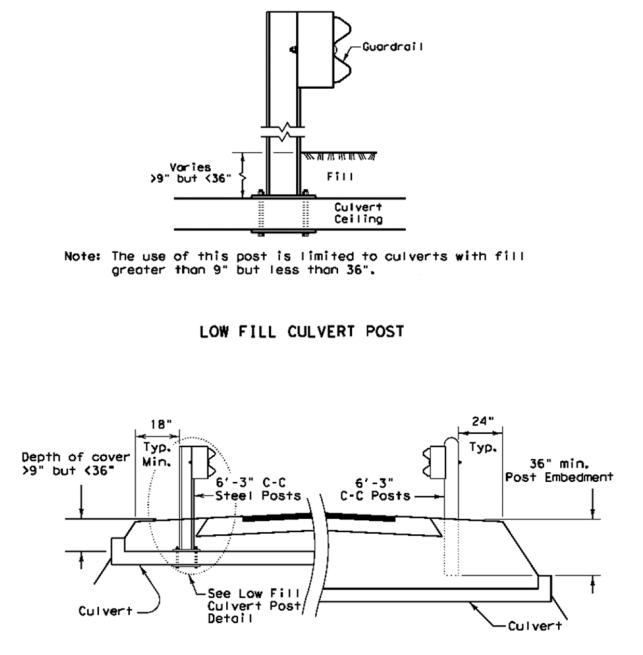4.12.5 Bridge Class Drainage Culverts
Bridge class culverts are defined as those having an opening (i.e., distance) of more than 20-ft between the extreme inside faces as measured along the highway centerline. Bridge class culverts require protection whether they are inside or outside of the clear zone. Exceptions to this requirement can be obtained by approval of a Design Exception. See TxDOT’s
for additional information on protection of bridge class culverts.
See
for a visual representation of bridge class culverts.

Figure 4-30: Bridge Class Drainage Culvert
Recommended treatment options are in the following priority:
- Safety treat culvert ends.
- Bridge Railing is an option for all depths of cover, provides available TL-3 guardrail options consistent with the respective guardrail and attenuator standard.
See discussion on cost comparison under Multiple Box Culverts for considerations when deciding on whether to safety treat or shield the culvert ends.
Depth of Cover (D) | Treatment |
D < 9-in 1 | Bridge Railing |
9-in ≤ D < 36-in | Steel post welded to base plate and bolted to culvert ceiling (Low-fill culvert post option on Guardrail standard) |
D ≥ 36-in 1 | Standard Guardrail |
Notes: | |
| |
An additional option for shorter bridge class culverts is the use of the Long Span Guardrail when the clearance requirements on the standard are met.
Where guardrail is carried across a bridge class culvert, side slopes should be designed to provide for lateral support of the guardrail. See Figure 4-31 and the current guardrail standard for specific application.

Figure 4-31: Use of Guardrail at Culverts